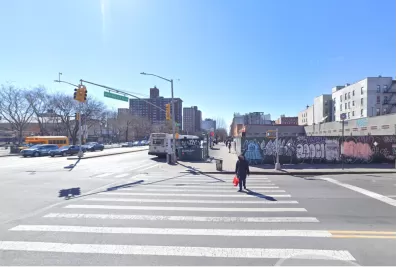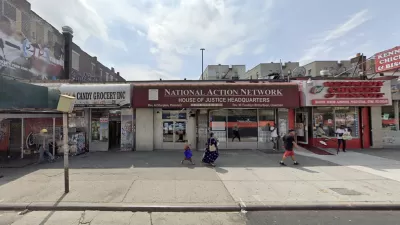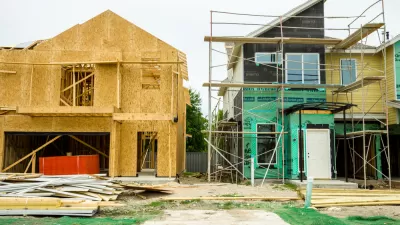After a proposal for a mixed-use development failed to gain support from a local city councilmember, the developer turned the site into a truck storage depot, prompting concerns over air quality and health impacts.

After a local councilwoman protested a proposed housing development on a Harlem lot, citing gentrification concerns, the developer chose to use the site for a truck depot instead. “Their fight reflects the challenge of building housing in New York,” write Emma G. Fitzsimmons and Mihir Zaveri in the New York Times.
The proposal, which was supported by Mayor Eric Adams, included over 900 housing units, with 10 percent set aside for households making less than $40,020 per year. Councilwoman Kristin Richardson Jordan “said she would have agreed to the project had Mr. Teitelbaum agreed to include more homes that were affordable to people with lower incomes — making a fifth of the apartments available to families of four earning $40,020 per year, for example, and reserving half of the apartments for families of four earning up to about $80,040.” Jordan called her proposal “an extreme compromise” that would still result in massive profits for the developer.
The decision to replace the proposed apartment tower with truck parking raises the stakes of New York’s already tense debate over housing, with neighbors accusing developer Bruce Teitelbaum of intentionally causing harm with the polluting, noisy facility. Teitelbaum says he is considering other options for the lot that would not require city approval, like a smaller apartment building or a self storage facility.
FULL STORY: Why Harlem Is Getting a Truck Depot Instead of New Housing

Planetizen Federal Action Tracker
A weekly monitor of how Trump’s orders and actions are impacting planners and planning in America.

San Francisco's School District Spent $105M To Build Affordable Housing for Teachers — And That's Just the Beginning
SFUSD joins a growing list of school districts using their land holdings to address housing affordability challenges faced by their own employees.

The Tiny, Adorable $7,000 Car Turning Japan Onto EVs
The single seat Mibot charges from a regular plug as quickly as an iPad, and is about half the price of an average EV.

Seattle's Plan for Adopting Driverless Cars
Equity, safety, accessibility and affordability are front of mind as the city prepares for robotaxis and other autonomous vehicles.

As Trump Phases Out FEMA, Is It Time to Flee the Floodplains?
With less federal funding available for disaster relief efforts, the need to relocate at-risk communities is more urgent than ever.

With Protected Lanes, 460% More People Commute by Bike
For those needing more ammo, more data proving what we already knew is here.
Urban Design for Planners 1: Software Tools
This six-course series explores essential urban design concepts using open source software and equips planners with the tools they need to participate fully in the urban design process.
Planning for Universal Design
Learn the tools for implementing Universal Design in planning regulations.
Smith Gee Studio
City of Charlotte
City of Camden Redevelopment Agency
City of Astoria
Transportation Research & Education Center (TREC) at Portland State University
US High Speed Rail Association
City of Camden Redevelopment Agency
Municipality of Princeton (NJ)





























